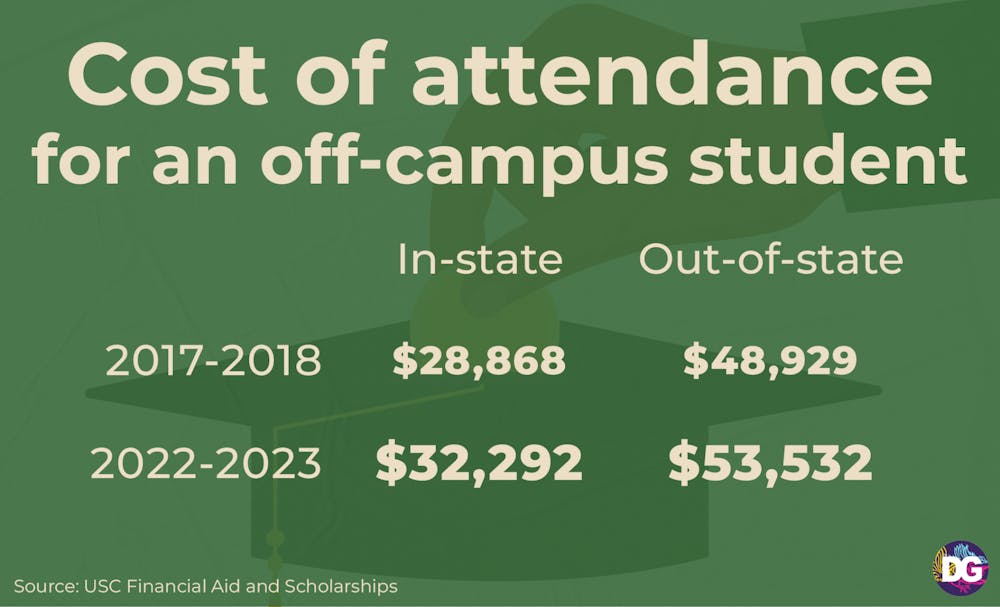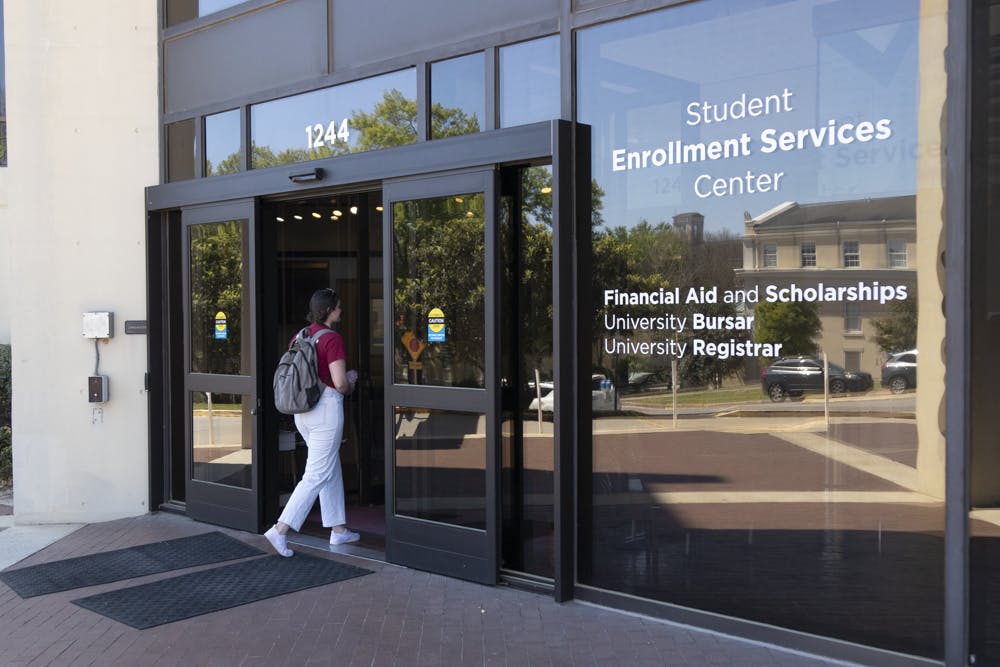Rising costs and inflation have made college attendance more expensive than it was five years ago, despite four years of tuition freezes.
Rising cost of attendance — which includes tuition, tech fees, average housing costs and food — has been a trend since the 1970s, but USC, Columbia and economic policy have all changed since South Carolina approved the first tuition freeze for the USC system four years ago. The war in Ukraine and COVID-19 are two factors that have shocked supply chains and in part cost USC students and Americans money.

However, housing is often the biggest cost for not just USC students but all Americans. Since August 2017, the consumer price index for the average price of rent has risen by more than 82 points, according to the Federal Reserve Bank of St. Louis. This means rent has inflated by 26% across America in a little over five years.
“The global pandemic has led to prolonged budget uncertainty for many South Carolina families,” former Interim President Harris Pastides said in a 2021 press release about USC freezing tuition. “I hope that we can give some comfort to both current and future students that we recognize these challenges and that our institution is committed to offering affordable degree programs.”
The university calculates on-campus living, including housing, personal costs, books and supplies, to cost a South Carolina resident $34.7K for the 2022-2023 school year. When comparing that to the same calculation in 2017, when an academic year at USC cost $29.3K, expenses have risen 18.4%.
"It sucks," second-year public health student Laura Witt said. "Higher education should be one of those things that everyone has access to."
The rise in the cost of attendance is less steep for out-of-state students living on campus. While five years ago attending USC cost them $49.4K, it now costs about 11% more at $55.9K.
However, economists suggest that, despite the rising cost to attend USC, college is a worthy investment in the long run.
“It’s clear that tuition has increased quite a bit,” Jason Debacker, an associate professor in the Department of Economics, said. “I think it’s also fairly clear that the college wage premium — the difference between what you earn with and without a college degree — has also increased.”
First-year African American studies student Kanyisile Barrett said that even with in-state tuition, attending USC is pricey, but she sees her degree is a necessary step towards getting her doctorate.
"It definitely should be a lot cheaper to come here," Barrett said. "Higher education is needed essentially to have any good job in this country and if you want to make real money."
Earning a bachelor’s degree today gives a college graduate a better chance at earning a higher wage than it would over 30 years ago, according to the Federal Reserve Bank of Cleveland.
However, job opportunities for workers with a bachelor’s degree have become more competitive as more Americans earn a college diploma. According to the Education Data Initiative, more than 50,000 more students graduated college with a bachelor’s degree in 2020 than in 2018.
Orgul Ozturk, a professor and the department chair of economics, said getting a college degree — and hopefully higher pay — isn't just about passing your classes and extracurriculars.
“I don't think it was ever itself enough — having a diploma,” Ozturk said. “It was what was included in that diploma.”
Seniors, or soon-to-be graduates, may have to compete with other workers with a newly acquired bachelor's degree, but Ozturk said the investment and accessibility of a higher degree is still a good thing. From 2000 to 2016, over 10% more high school graduates from low-income families have enrolled in four-year institutions.
“It’s not about the quality of education or anything, it’s about accessibility of college education,” Ozturk said. “It’s not accessible by everyone, but (it's) accessible by more.”

